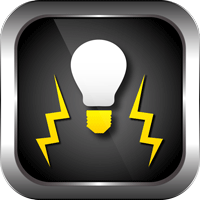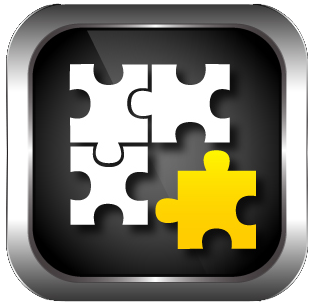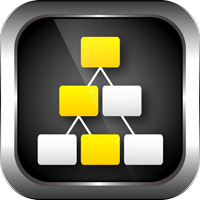YOU ARE VIEWING A DEMO REPORT
Angela Person

Expert Consistency Scores
Step Research
Introduction 00
Back to Table of ContentsMany report sections are written expressly for experts to give them more information about their clients. These sections are more advanced or are particularly useful to the expert, but wouldn’t typically be shared with clients. The experts are able to choose not only what psychological models they want to use, they also get to choose what report sections fit their process and when to share which reports with their clients. We give the power and control to you, the expert, to enable you to manage what clients see, making sure your clients have the desired experience.
The Expert Consistency Scores Report is a great example of a set of report sections that are more advanced and would benefit from expert interpretation. These sections integrate multiple models to show how the client answered activities and summarize the model results with a “consistency score”. A “consistency score” ranges from 1-100 and is based on how consistently a client chose that option during activities. For example, if a client always chose Introverted Intuition over other functions when doing activities for Cognitive Functions, in other words, when given the choice, the client always ranked it first, then the client would have a consistency score of 100 for Introverted Intuition.
This information can be useful when completing the best-fit process with a client. Often just asking the question “Why” can lead to profound discussions. The report gives the expert all the data, not just the final result, and that there may be fruitful discussions about any one of these data points and the expert gets to decide which ones will be the most useful with particular clients as they work with them on best-fit. Such dialogues can help highlight what is unique about different clients and perhaps open up a discussion about how what is going on in their lives has shaped their individual approach to life and work. Depending on the client and where the client is in the process with the expert, it can make sense to share this report with the client immediately, eventually, or never.
01 Whole Type Consistency Scores ENFP
Back to Table of ContentsConsistency scores from doing a set of best-fit activities
Learn more here:http://lindaberens.com/resources/methodology-articles/the-sixteen-personality-types.
Note that the whole type consistency scores are impacted by the consistency scores of the other behavior patterns.
Angela's Whole Type Consistency Scores
Current Best-Fit Verified Pattern: ENFP
| Score | Berens' Name | Visual Type™ | Type | Jungian Functions |
|---|---|---|---|---|
| 65 | Discoverer Advocate™ |
Invent
Value
|
ENFP | Ne Fi |
| 56 | Explorer Inventor™ |
Invent
Analyze
|
ENTP | Ne Ti |
| 54 | Envisioner Mentor™ |
Consideration
Insight
|
ENFJ | Fe Ni |
| 50 | Harmonizer Clarifier™ |
Value
Invent
|
INFP | Fi Ne |
| 45 | Motivator Presenter™ |
Now
Value
|
ESFP | Se Fi |
| 42 | Facilitator Caretaker™ |
Consideration
Stabilize
|
ESFJ | Fe Si |
| 34 | Foreseer Developer™ |
Insight
Consideration
|
INFJ | Ni Fe |
| 28 | Promoter Executor™ |
Now
Analyze
|
ESTP | Se Ti |
| 21 | Composer Producer™ |
Value
Now
|
ISFP | Fi Se |
| 20 | Protector Supporter™ |
Stabilize
Consideration
|
ISFJ | Si Fe |
| 19 | Strategist Mobilizer™ |
Execute
Insight
|
ENTJ | Te Ni |
| 18 | Conceptualizer Director™ |
Insight
Execute
|
INTJ | Ni Te |
| 13 | Implementor Supervisor™ |
Execute
Stabilize
|
ESTJ | Te Si |
| 12 | Planner Inspector™ |
Stabilize
Execute
|
ISTJ | Si Te |
| 10 | Designer Theorizer™ |
Analyze
Invent
|
INTP | Ti Ne |
| 9 | Analyzer Operator™ |
Analyze
Now
|
ISTP | Ti Se |
Original work by: Sterling Bates Katherine Hirsh © Step Research Corporation
02 Cognitive Function Consistency Scores ENFP
Back to Table of ContentsConsistency scores from doing a set of best-fit activities
Learn more here: http://lindaberens.com/resources/methodology-articles/cognitive-dynamics
Angela's Cognitive Function Consistency Scores
| Score | Berens' Name | Function | Jungian Name | Cognitive Superpower | Go-To Behavior | Visual Color |
|---|---|---|---|---|---|---|
| 100 | Interpreting | Ne | Extraverted Intuition |

Energized Webs
|
Invent | |
| 80 | Connecting | Fe | Extraverted Feeling |

Social Telepathy
|
Consideration | |
| 50 | Valuing | Fi | Introverted Feeling |

Courageous Harmonizing
|
Value | |
| 50 | Foreseeing | Ni | Introverted Intuition |

Super Realization
|
Insight | |
| 25 | Segmenting | Te | Extraverted Thinking |

Power Marshalling
|
Execute | |
| 10 | Experiencing | Se | Extraverted Sensing |

Hyper Senses
|
Now | |
| 0 | Reviewing | Si | Introverted Sensing |

Total Recall
|
Stabilize | |
| 0 | Analyzing | Ti | Introverted Thinking |

Super Analyzing
|
Analyze |
Original work by: Sterling Bates Linda Berens Katherine Hirsh © Step Research Corporation
03 Essential Motivator Consistency Scores ENFP
Back to Table of ContentsConsistency scores from doing a set of best-fit activities
Angela's Essential Motivator Consistency Scores
| Score | Essential Motivator | Temperament | True Colors | Type Sequence | Whole Types |
|---|---|---|---|---|---|
| 100 |
Catalyst
|
Idealist | Orange | NF |
ENFJ ENFP INFJ INFP |
| 50 |
Improviser
|
Artisan | Blue | SP |
ESTP ESFP ISTP ISFP |
| 33 |
Stabilizer
|
Guardian | Gold | SJ |
ESTJ ESFJ ISTJ ISFJ |
| 17 |
Theorist
|
Rational | Green | NT |
ENTJ ENTP INTJ INTP |
Original work by: Sterling Bates Linda Berens Katherine Hirsh © Step Research Corporation
04 Interaction Styles Consistency Scores ENFP
Back to Table of ContentsConsistency scores from doing a set of best-fit activities
Learn more about Interaction Styles here: https://lindaberens.com/resources/methodology-articles/interaction-styles
Angela's Interaction Styles Consistency Scores
| Score | Interaction Style | Stothart's Name | DiSC | Social Styles | Thomas-Kilman Conflict Mode | Whole Types |
|---|---|---|---|---|---|---|
| 100 |
Get-Things-Going™
|
Energizer | I | Expressive | Compromising |
ENTP ESFP ENFP ESFJ |
| 50 |
In-Charge™
|
Mobilizer | D | Driver | Competing |
ENTJ ESTJ ESTP ENFJ |
| 33 |
Chart-the-Course™
|
Navigator | C | Analytical | Avoiding |
INTJ INFJ ISTP ISTJ |
| 17 |
Behind-the-Scenes™
|
Synthesizer | S | Amiable | Accomodating |
INFP ISFP INTP ISFJ |
Original work by: Sterling Bates Linda Berens Katherine Hirsh Catherine Stothart © Step Research Corporation